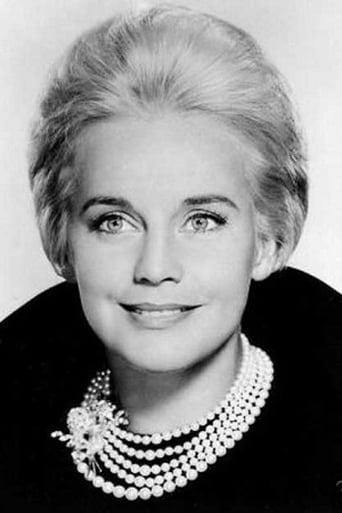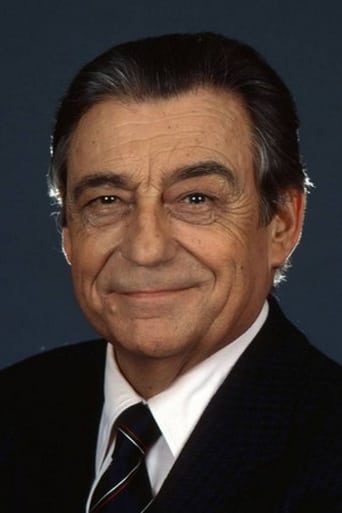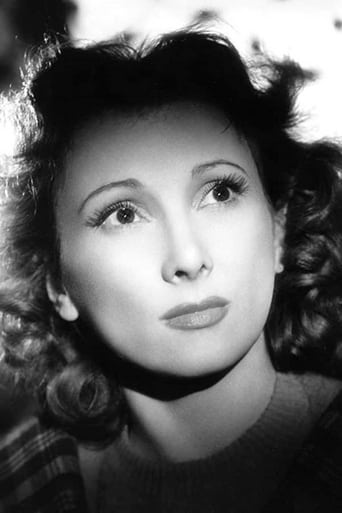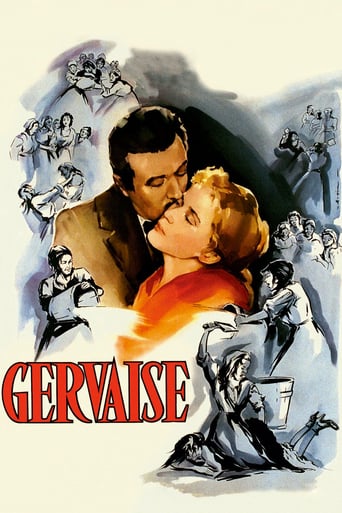
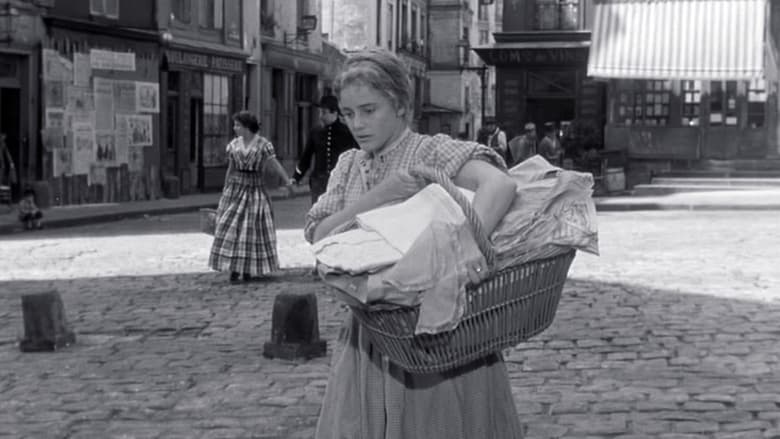
Gervaise (1956)
An adaptation of Émile Zola’s 1877 masterpiece L’assommoir, the film is an uncompromising depiction of a lowly laundress’s struggles to deal with an alcoholic husband while running her own business.
Watch Trailer
Cast


Reviews
Brilliant and touching
To all those who have watched it: I hope you enjoyed it as much as I do.
It really made me laugh, but for some moments I was tearing up because I could relate so much.
The film may be flawed, but its message is not.
This is absolutely beautiful movie that depicted brilliantly life of working class in France in the late 19th century. It is based on Emile Zola's novel L'Assommoir.The main protagonist is perfectly portrayed by amazing Maria Schell and we can see well into all of Gervaise's virtues, but frailties as well and understand her emotions and struggles she endures constantly in her troubled life. The ending leaves Gervaise in full misery and the director Rene Clement turns our attention to her little daughter Anna - called Nana - that will be the protagonist of another, even more famous Zola's novel of the same name.
Acclaimed film from Emile Zola's "L'Assomoir": typical of French art-house cinema, it's meticulously-detailed, technically proficient and splendidly acted however, the main plot of a crippled woman whose ambitions to open her own laundry business are hampered by a complex love life isn't exactly thrilling. Still, one can certainly understand the multitude of international prizes the film won or was nominated for at the time of its release.In fact, Gervaise (German actress Maria Schell in a luminous performance) is involved throughout with a philandering ne'er-do-well (who fathered her two elder children), her husband splendidly portrayed by Francois Perier who loses his job after falling off a roof and subsequently takes to drink (with whom she has another kid) and a young political activist (who gets thrown into jail)! The woman has a similarly ambivalent relationship with her husband's family and the neighbors in the poor quarter where she lives especially the sister (played by a reptilian Suzy Delair) of the woman with whom her first lover eloped. They have a big fight in the washing centre of town (which even involves some surprising split-second nudity) but, when they meet again, both are willing to bury the hatchet (Delair having married the local police constable)...that is, until the lover himself reappears! Ironically, Perier and his rival become friends (they even look alike!) and the former eventually contrives to have the latter lodge with them!! Ultimately, though, Perier's drinking problem escalates to the point where he becomes an embarrassment to his wife (admirably, the director does not shy away from showing his vomit-soaked pillow at one point!) and, in a fit of rage, destroys her shop; this harrowing sequence culminates in him being taken away by hospital attendants bruised and raving (in fact, he dies shortly afterwards). Equally depressing, however, is the ending which finds Schell destitute (having sold the shop to Delair, now in cahoots with her former lover) and herself a frequent customer of the local tavern!; no longer able to care for her youngest daughter, the latter is forced to look out for herself which she does with naïve optimism.I have two more titles by the underrated Clement in my unwatched VHS/DVD pile JOY OF LIVING (1960) and IS Paris BURNING? (1965) as well as another highly regarded French film starring Maria Schell Alexandre Astruc's UNE VIE (1958; though available only in its original language)...
Against every preconception I could think of, I loved this film. Gervaise is not only an interesting parable which rightly exposes the us to the dangers of drink, but making Maria Schell the protagonist casts the light of feminism into the equation. There is no way to ignore this interpretation either given Schell's brilliantly righteous performance as Gervaise.Her husband is a drunken fool, no longer able to bring in money to support his family following an accident François Perier plays a drunk worryingly convincingly, but Gervaise is far from helpless. She puts up with the incessant tirade of abuse, womanising and eventually the violence. She is vulnerable yet forceful, respected but never entirely respectful. Nonetheless she is a protagonist and she isn't without her flaws. Her forgiveness of her husband cannot be criticised; we mustn't forget that we're watching a film about the second empire. The issues however are increasingly relevant. Both to Clement as a director in the 1950's and to anyone who decides that picking up a bottle can only harm the consumer.
The climactic scene of this movie is comparable to the straitjacket scene in Blake Edwards' "Days of Wine and Roses" in that after viewing these films back to back one might be tempted to cut down one's beer consumption for that day....the difference being Jack Lemmon suffers alone, whereas Francois Perier brings his wife's fragile world crashing down with him....it would be hard to judge which scenario is more devastating. Both men give towering performances..."Gervaise" tops "Wine" in its mise en scene, an unequalled view of late 19th century French provincial squalor. The production design here is beyond praise...I was surprised to find myself somewhat shocked at the domestic arrangements that Maria Schell's character endured, even at this permissive date...Zola's portrayal of domestic scandal does not date....some "arrangements" are just a bad idea, no matter what century you live in.


